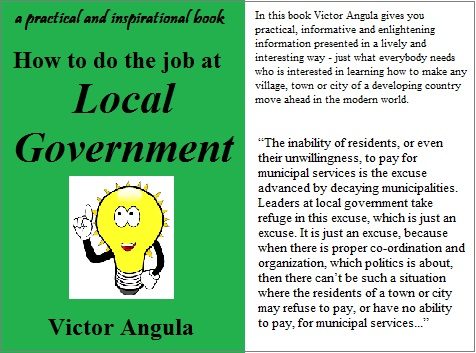
The price of selfishness
Development must be seen; it must be visible. Physical structures have to spring up from the ground. People can’t continue to live in shacks, slums, and huts or whatever is called the housing structures made out of sticks and grass, and you say there is development taking place in your village or town. The growth of the urban areas must not mean the growth of slums and other such vermin-infested informal settlements.
Roads must be roads, not just dirt roads or pothole-riddled public roads. Politicians must pick up foreign magazines and see how foreign countries have grown over the past hundred years. You don’t need to go to Tokyo or Dubai; you can just look in the media and see what is meant by development. Cities are cities when there are high-rise buildings. And towns are towns when they have proper houses and all the modern facilities and such are available to most of the town’s residents.
Development is not only to build a big high-rise municipal building surrounded by match-box buildings. In the past if a town “grew” it only became a sprawling kind of informal settlement with short and low quality buildings. This was because the local government was making money out of selling municipal land. Instead of putting a ban on the development of new plots, so that the town may grow upwards to the skies, the town became a sprawling eye-sore which never could be classified as a city.
And development must also create jobs; people cannot come from outside to build a town, neither should the locals volunteer to build the infrastructure of their town. Development without concomitant employment-creation is useless; it makes no sense, as it will always need the outsiders again to maintain the structures, because anything created by foreign experts can only be maintained by foreign experts.
And then the second task is to run the village, town or city. This is the most important task. Development becomes useless if the town can’t be run properly. Soon enough buildings fall apart. Infrastructure has to be built in a well-ordered manner. It has to be quality buildings which can withstand the elements of nature and stand the test of time.
Selfishness and greed is the biggest problem at local government. The town planners and managers and leaders go for poor quality infrastructures, because high-quality infrastructures require more money to build and to maintain. Rather they would have some money for themselves than spend it all in quality infrastructures that can last for generations. By the way, they know that when things would start to crack up and crumble they would no longer be in office.
So that African societies have always suffered and paid the price for selfishness.
But a serious local government leader who is interested in building a town into a city has no place to accommodate low quality infrastructures. You cannot build anything of value on the back of selfishness. Low quality houses are important and necessary, of course. But low quality houses are temporary structures; they are not part of the town’s growth and development.
They are to be temporary measures. They are like pitching tents for the people to find temporary shelter. The goal of every town is to grow into a city; but no city can be a city if it has low quality houses. Poor quality roads soon enough break up and become full of potholes. No city can be a city if it has such road infrastructure.
High-rise buildings soon enough collapse if they were made with poor quality materials. Poor quality infrastructure might only be appropriate for a village. But if a village has a village council, and this council is forward-looking and forward-thinking and forward-planning, then this village’s goal is to develop into a town and soon enough a town into a city.
So that poor quality infrastructure and low quality houses are only made to be temporary solutions to underdevelopment rather than be seen as long-term investments. These may only be temporary alternatives to the problem of lack of housing in a developing country. Thus the occupants of such houses may not be expected to take out mortgages that are payable over a long-term period.
(The serialisation of the book “How to Do the Job at Local Government” continues. Don’t miss next week’s episode.)






